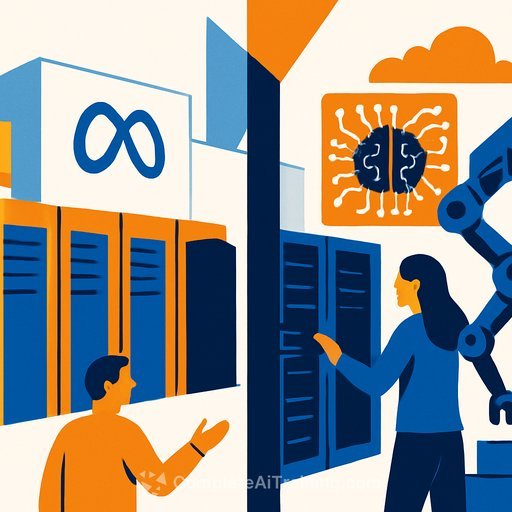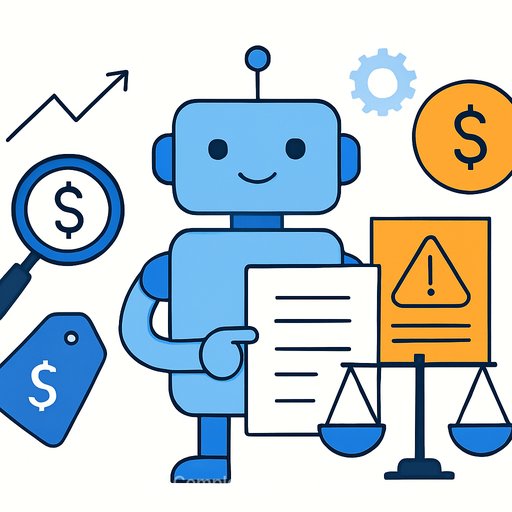AI Can Crunch The Numbers, But Only Humans Truly Care
AI in personal finance acts as an on-demand explainer, number-cruncher, and budget tracker, freeing up time and mental space for bigger-picture thinking. Yet, when money decisions involve human behavior, emotions, and long-term trade-offs, AI works best as a co-pilot alongside a human financial advisor.
The Role of AI in Personal Finance
Shubham Pandey, a 29-year-old consulting firm manager from Ghaziabad, has moved beyond Excel spreadsheets to using generative AI tools like ChatGPT and Google’s Gemini for managing his personal finances. What began as curiosity has become a habit that simplifies his financial tracking.
Instead of manually sorting bank statements and credit card spends, Shubham uploads his data to AI tools that categorize expenses automatically, from shopping and household spends to small UPI transactions. This process saves mental energy and calculation time.
He layers AI use: basic monthly expense tracking and reminders about bills, emergency funds, or overspending, and advanced tasks like filing tax returns or evaluating investment options via Gemini integrated with his Google account. The AI remembers his past inputs and spending patterns, offering suggestions aligned with his financial goals.
When planning his sister’s birthday gift, Shubham asked AI to set a budget target and followed through without compromising his home loan EMI or daily expenses. Even for purchases like phones, AI compares specs, applies credit card offers, and advises on the best buying time.
Over the last year, these AI tools have helped Shubham save roughly Rs 6,000 monthly by flagging impulse buys, optimizing timing, and monitoring credit card limits across accounts. Real-time nudges help him course-correct before the month ends.
While primarily using AI for budgeting, Shubham also compares products, weighs loan terms, and analyses market trends for stocks. He values the speed—getting in minutes what used to take hours.
How Does AI Advice Work?
There’s a key difference between generative AI tools like ChatGPT or Gemini, which respond to open-ended prompts, and structured robo-advisories designed specifically for investments. Robo-advisors are rules-based, linked to verified data, and provide more predictable advice. Generative AI is more flexible but can be less reliable and sometimes factually incorrect.
Krishan Mishra, CEO of Financial Planning Standards Board India, notes that robo-advisors focus on efficiency—cleaning and presenting data—while generative AI synthesizes answers from multiple sources.
Kaustubh Jadhav, a 29-year-old venture capitalist from Bengaluru, uses an AI-powered robo-advisory platform that integrates directly with his investment accounts. It sends monthly reports with portfolio summaries, allocation breakdowns, and alerts for underperforming investments.
This tool acts as an analyst on retainer, digesting his financial data so he doesn’t have to log into multiple platforms. It flags imbalances and prompts reviews, helping Kaustubh make quicker, confident decisions while saving time.
Shubham’s conversational AI and Kaustubh’s automated reports highlight that AI in personal finance covers a spectrum—from open-ended, democratic chatbots to tightly controlled, account-linked platforms. Regulatory bodies like SEBI require robo-advisors to register as investment advisors, ensuring some oversight.
For Kaustubh, AI is an early warning system, not a decision-maker.
Limitations Of AI Advice
Accuracy Is Questionable
AI cannot be blindly trusted since it draws from large collections of web resources that may not update in real time. Knowledge cutoffs in large language models mean chatbots might cite outdated tax laws or regulations, risking penalties or missed opportunities.
AI often lacks context. Nishant Pradhan from Mirae Asset Investment Managers stresses the need to apply individual judgment to AI outputs, viewing AI as a research aid rather than a final authority.
Shashi Shekhar Vempati notes AI chatbots are trained on publicly available internet content, which may include unverified or global data irrelevant to local regulations.
Sadique Neelgund warns that generative AI can produce misleading advice if its data doesn’t reflect the regulatory or market environment specific to India.
Prompts Can Be A Tricky Game
Good AI responses depend on how well questions are asked. Shubham notes early generic answers or US-centric assumptions improve when he specifies “in India” and provides full financial context. Trial and error in prompt crafting is common but risky if users are not cautious.
Confirmation Bias Can Skew Results
Repeated prompting can lead AI to give the answer users want to hear, reinforcing confirmation bias. Jaspreet Bindra of AI & Beyond explains AI mimics empathy but doesn’t truly understand emotions or stakes.
Mishra cautions that relying on AI’s simulated empathy for decisions about insurance or mutual funds can be dangerous without verification.
Data Privacy Is A Concern
Sharing sensitive financial data with AI tools carries risks. Shubham avoids entering account numbers or sensitive info, instead using broad summaries or hypothetical data.
Open AI platforms often lack privacy guarantees, and data breaches or misuse remain risks. Sharing personal financial data externally may violate laws like GDPR or India’s DPDP Act, 2023.
Bindra recommends using enterprise-grade, locally hosted, compliant AI tools for financial tasks. Otherwise, AI should be a guide, not a secure vault.
Adoption By Advisors
Financial planners generally see AI as a helpful assistant rather than a competitor. FPSB research shows over 75% of planners believe AI improves client service, and 60% say it enhances advice quality.
AI is mostly used for client communication, data collection, and risk profiling—time-consuming groundwork that supports human judgment.
Neelgund says advisors use AI to anonymize client profiles, run simulations, summarize reports, and prepare charts, freeing time for deeper client conversations.
Platforms like Novelty Wealth combine SEBI-registered human expertise with AI “conversation agents” that scan accounts, flag inefficiencies, and suggest corrections. Human advisors review AI findings before clients act.
This hybrid model balances expert advice accessibility with quality control. Firms like 1 Finance use AI to analyze thousands of financial products but keep recommendations human-led. “AI is a remarkable co-pilot, but never the pilot in command,” says co-founder Keval Bhanushali.
Mishra compares AI to a tool that can cut an eight-hour job to half an hour, leaving more time for refining plans and ensuring implementation. The human “financial doctor” role remains vital to manage emotions, biases, and complex life contexts.
What Works For You?
AI can handle many tasks, but it struggles with personalized context and emotional insight that financial advisors provide. Neelgund emphasizes that the client-advisor relationship goes beyond numbers—it's about life journeys and social bonds AI cannot replicate.
Kaustubh highlights that AI lacks knowledge of his long-term goals or risk appetite. Too much data can overwhelm and prompt rash decisions, where human advice helps maintain perspective.
Mishra says both generative AI and robo-advisors interpret data but cannot empathize or truly understand personal context. Human advisors provide the reassurance and steady guidance AI cannot.
Dilshad Billimoria condenses financial decision-making into four questions: risk, potential loss, return, and goals with timeframes. AI speeds up getting answers, but interpretation and action remain human responsibilities.
Integration Is The Key
Young professionals often prefer quick answers. Mumbai-based CFP Mohini Mahadevia notes AI’s strength in budgeting and expense tracking, where instant, judgment-free responses help. But investment planning needs nuance AI can’t fully grasp.
For example, different life situations require different goals and strategies. Without first-hand knowledge, AI advice can do more harm than good.
Delhi NCR marketing professional Himanshu Ranjan, 22, uses AI as a teacher and quick reference but turns to trusted people for major financial decisions like insurance or portfolio rebalancing.
If you want to explore AI tools that can assist in finance roles, consider browsing AI tools for finance or learning more at Complete AI Training.
Your membership also unlocks:





